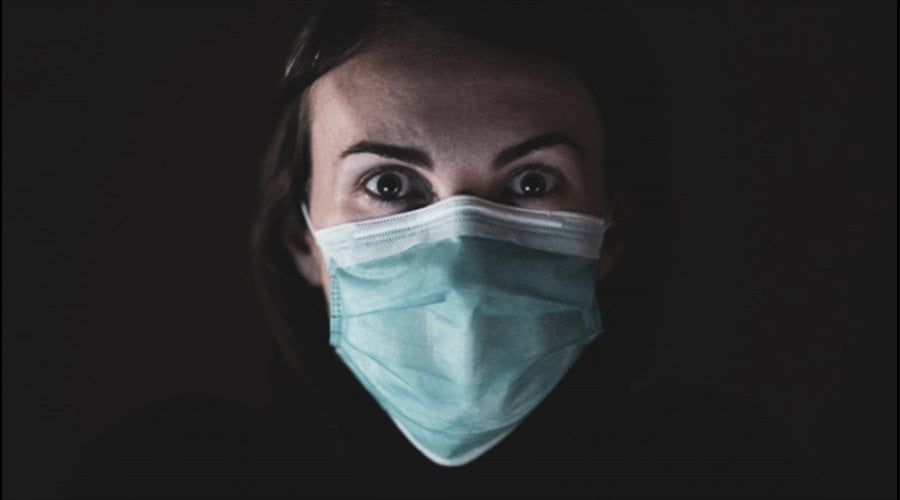Here we go: ‘I’m an A&E doctor and this is why it’s time to start wearing masks again … as experts issue dire warnings over a virulent new Covid variant’. It is extraordinary that after all this time they still talk the same trash after learning NOTHING.

It’s that time again. No, I don’t mean New Year and resolutions: I mean mask time.
I can hear the universal groan. But if you want to spend winter without an irritating cough rattling through your chest day and night (you know, that cough doing the rounds in the office, or supermarket) or that gnawing whole body ache, where even your hair hurts — then wear a mask.
I always don one in crowded places but on a short flight back in the autumn, I forgot to bring one. The plane was packed with chesty coughers and, not surprisingly, a few days later, I was unwell with what turned out to be a four-week viral illness.
It coincided with a long-awaited knee operation, which almost had to be cancelled because those with coughs had chosen to not wear masks and instead spread their viral droplets over the rest of us.
Luckily, I turned a corner just in time — the operation went ahead — but I have never forgotten my mask since.
Now one of the UK’s leading experts, Sir Andrew Pollard, who is a professor of infection and immunity at the University of Oxford, is predicting ‘a rise in [Covid] infections in the population over the course of the next week’, driven by a highly infectious strain of the virus known as JN.1.
Given the rising numbers of Covid-19 cases and viral infections as we merrily mixed over the festive period, you would think masks would have a big role to play in keeping us safer.
For despite the pandemic mask message confusion generated by the Government and its senior advisers (then Deputy Chief Medical Officer, Jenny Harries, told Boris Johnson in a No 10 fireside chat video in March 2020 that wearing masks ‘was not a good idea’), the consensus is now clear: masks help prevent infection spread by droplets and viruses and bacteria transmitted by.
A paper published in the BMJ in May 2020 on a retrospective study of 335 people found masks to be 79 per cent effective in reducing transmission from infected people to others.
They also stop you catching viruses — a study in the Journal of Medical Devices and Sensors in February 2021 found that ‘correctly wearing masks of all kinds… reduce[s] the overall risks of Covid-19 infection and enhance[s] general protection from coronavirus’.
was in A&E a few weekends ago, getting back into clinical work after a break (doing a PhD). The last time I was on was two winters ago during the second wave of Covid.
Walking into the A&E department, it was like time had stood still; people being swabbed for viral infections, many of the tests positive, and patients with respiratory problems being brought in by ambulance — many of them elderly and vulnerable.
It brought back painful memories, and my legs got that same sensation of weakness I had when I looked after my father, as he struggled to breathe with Covid-19. I cared for him for five days until he died.
This time round, it wasn’t just Covid-19: today we’ve got respiratory syncytial virus (RSV) and influenza adding to the virus cocktail floating around us and overwhelming A&E departments.
And the numbers confirm this; the latest figures, for the week of December 11-17, the number of patients going to their GPs for flu-like illnesses had increased 19 per cent from the week before, while hospital admissions for flu rose by 77 per cent.
Read More: I’m an A&E doctor and this is why it’s time to start wearing masks again.
This article has been archived for your research. The original version from David Icke can be found here.



